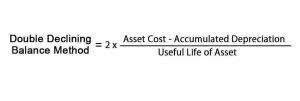
It is based on the sales forecast and considers the inventory levels, production capacity, and production efficiency. The production budget is essential for managing inventory levels, determining production costs, and achieving sales targets. The financing activities projections may include estimates for debt financing and equity financing.

Direct Materials Purchases Budget

Creating a master budget is a complex process requiring a skilled professional team. Third, they must have excellent communication skills to work Online Accounting with other departments and stakeholders. One of the most significant benefits of a master budget is that it provides a framework for measuring financial performance. By comparing actual financial results to the budgeted figures, businesses can identify areas where they exceed or fall short of their financial goals.
- Several elements, including a company’s size, industry, and location can help a team decide which budgeting method may be useful.
- The company may have material assets worth $105,000 if it sells 4,500 internet modems in a single accounting period.
- The sales budget is then developed based on these assumptions, setting the stage for subsequent budgets.
- Businesses must determine when to start preparing the master budget and how often to update it to ensure it is accurate and reliable.
- They can take necessary steps to manage their cash flow, such as delaying payments or arranging short-term financing.
- The production budget is a plan for producing goods and services required to meet the sales targets set in the sales budget.
How Do Businesses Ensure That Their Master Budget Aligns With Their Strategic Goals?

Second, they must have excellent analytical skills to analyze financial data and make informed decisions based on the available information. The finance team must analyze historical financial data, market trends, and other relevant factors to prepare accurate budgets. The master budget also enables managers to identify potential risks and challenges that may impact the company’s financial performance and to develop strategies to mitigate those risks. A master budget is a comprehensive financial plan that outlines a company’s projected income and expenses for a specific period, usually a year. Its real value comes from connecting an organization’s strategy, operations, performance monitoring, resource planning, and financial accountability. Think about the scenario where Nelson Technologies discovers that each finished internet modem requires four groups of raw materials.
Generate a direct labor budget
- Annual updates are suitable for small businesses with a simple financial planning cycle, such as those with one product or service.
- You can modify this budget per accounting period in accordance with a company’s needs.
- The marketing budget outlines the resources required to promote the business’s products or services and reach the target audience.
- Providing a structured approach to financial planning and control enables managers to make informed decisions, coordinate their efforts, and optimize the use of resources.
- It covers indirect expenses that cannot be directly traced to a product or service.
Finally, the budgeted balance sheet reflects total assets of $1,500,000 and total liabilities and equity of the same prepare a master budget amount. This example demonstrates how the master budget integrates various financial elements to provide a comprehensive financial plan. The master budget includes all the lower-level budgets, such as sales, production, marketing, and cash. It is based on historical sales data, market trends, and other relevant factors such as consumer behavior, economic conditions, and competition.

Metrics should be developed to measure progress toward achieving the strategic goals. These metrics can be used to track progress against the budget, identify areas of success and areas that need improvement, and inform decisions about resource allocation. Once individual budgets have been created, they must be combined into a single, comprehensive document – the master budget. However, some businesses may need to prepare their budget earlier, especially if they operate in industries with seasonal fluctuations in demand or supply. For example, a retail business may need to start preparing its budget four to six months before the start of the fiscal year to factor in Grocery Store Accounting the holiday season’s sales volume.

Project Budgeting Process – What Is It? And How Does It Work?
- Understanding the master budget and its components is a critical step in building a budgeting process that aligns strategy with planning and resource allocation.
- Businesses should consider these external factors when preparing their master budget to ensure accuracy and reliability.
- The capital expenditures budget outlines the business’s investments in long-term assets such as buildings, equipment, and technology.
- Quarterly updates are suitable for businesses that operate in industries with stable demand and supply, such as manufacturing or distribution.
- This can help businesses make more informed decisions and avoid potential financial pitfalls.
- It brings structure to the budgeting process by combining operating, capital expenditure (CapEx), and cash budgets into one coordinated plan.
- The purchasing manager at Jerry’s Ice Cream uses this information, along with the price per pound, to negotiate the purchase of materials with suppliers.
One of the biggest challenges businesses face when preparing a master budget is a lack of accurate data. Creating accurate projections for sales, production, and other key areas can be challenging in that case. The overhead budget includes fixed and variable expenses, such as office rent, utilities, and business insurance. It covers indirect expenses that cannot be directly traced to a product or service. The overhead budget is essential for managing indirect expenses, optimizing cost structures, and achieving profit margins. The operating expenses budget encompasses administrative and sales-related costs, such as advertising or marketing.
The master budget should be reviewed regularly to align with the company’s strategic goals. This includes monitoring progress toward achieving the goals and making adjustments as necessary to ensure that the budget supports the strategic objectives. By regularly reviewing and updating the master budget, businesses can make informed decisions about their operations. They can change their spending and investment plans to remain financially stable, allowing them to react quickly to unforeseen events.
This can include unexpected expenses that arise throughout the year or ongoing expenses that may be easy to forget. Overlooking expenses can lead to a budget shortfall and cause financial strain on the business. This involves aggregating all of the separate budget items and ensuring that they are aligned with the overall goals and objectives of the business. The master budget should also be reviewed to ensure that all individual budgets are compatible and have no inconsistencies or conflicts.
